Latest News
My latest ramblings.
Enjoy! I definitely got important things to say
My latest ramblings.
Enjoy! I definitely got important things to say

When he tells the story, his voice drops almost to a whisper. It’s subtle, but there’s a proud little smile behind his words. He tells his story enchantedly, like a grandfather telling his grandchild a story about princes and dragons.
It all started in a nursery. Not for children, but a nursery for growing trees and plants. Toribio, father of four children between 25 and 35, had a job in forestation at a local nursery and worked every day to learn about proper growing techniques of San Lucas’s native flora.
In 1999, Toribio’s talent and knowledge on horticulture and forestation was noted by a group of international travelers who invited Toribio to speak at a conference in Wichita, Kansas. Toribio shared his knowledge and was given a stipend for being a guest speaker and for his dedication to protecting the environment.
A stipend in the United States goes a long way in Guatemala. So Toribio bought a plot of land with that chunk of money. The curious thing is that it wasn’t just any regular plot of land.
The land was sacred. It was home to a sacred Mayan rock which was used for traditional ceremonies.
“These days, there are churches and they have a different idea of what to do with the land,” says Toribio. “Now, the people come and they’re free do their ceremonies. There’s no problem.”
On what is now Toribio’s land, Mayan community members come and they bless the seed before planting, they baptize their children.
Effectively, Toribio saved a major cultural heritage spot from being ruined by private owners. Sure, the site is on private land, but Toribio has every intention to preserve it and act as a caretaker. He’s quick to point out that his last name Chajil, means “husband or guardian of the land” in the native Mayan dialect.
But his success didn’t come without some struggle. Toribio was living in an old house nearby with 14 other people. Everyone was family, but his sons and daughters kept getting married and having kids and the quarters were increasingly cramped. There were only 6 rooms, so for his youngest daughter, Maria, “there was no place for her.”
So Toribio and his daugther María decided to partner with Habitat to construct a house on the plot of land of the Mayan ceremonies.
“My daughter says to me, ‘Dad, I want to build a Habitat house here, because Habitat is our friend. Daddy, you can live here too,‘ so we did! And I feel privileged. Very grateful to God for the support that I’ve received. I’m very proud, humbly, to know that little by little I am living with dignity. We want to share with other people, we want to maintain communication with Habitat because we want to continue helping other people. I feel very very thankful to God.”

Behind the house, there’s a number of big rocks surrounded by ash that have a special significance for the locals. They pass through Toribio’s gate into the protected area. Toribio says he’s planning to clean out the front of his yard in order to make space for potential visitors – even space to accommodate buses. Of course, he says, he won’t charge anyone.
Toribio‘s also looking into the future. His success with his Habitat house, the forestation project, and the caretaking of the Mayan ritual site has sprung him forward into a world of new ideas. He’s contemplated writing a book, and really wants to eventually gather up the resources to open an ecological park so that people from all around the world can come and learn about the environment.
For now, he’s proud to be living up to his family name, caretaker of tradition and caretaker of family.


Maria Lopez, 49, is the strong matriarch of a household of 18 children and grandchildren. With so many mouths to feed, she is constantly busy cooking, cleaning, and weaving baskets to sell around town. Accordingly, it is essential that her home has a reliable and functional stove.
For years, Maria cooked on a stove that would start unwanted fires and produce lots of smoke. Her whole family was breathing the stove’s smoke daily and her home was dirty with smoke residue. This all changed when she found out that, with the help of Habitat, installing an alternative smokeless stove would be possible.
Maria has fond memories of the volunteer team that came to construct the stove. She remembers, “The brigade worked so hard. I am so grateful for them.” She can now cook all of her family’s favorite foods on the stove top without burning her hands or getting lots of smoke in her eyes.
In addition to the stove, Maria’s family is happy to have a brand new latrine in the backyard. It has sturdy wood walls, a tin roof with open space for ventilation, and best of all, a plastic toilet covering the earth. Maria remarks, “It is better than our old one, because I don’t have as much of a mess here.”
Overall, the new smokeless stove and latrine have provided healthy and clean upgrades for Maria and her family, taking necessary steps to reduce the risk of lung and and airborne disease.




For Marcela Jojero, age 79, receiving her smokeless stove was an emotional rollercoaster. Amid the excitement of the volunteer team’s arrival and the construction of the new stove, Marcela’s husband, who had been suffering from an illness for some time, passed away. Surrounded by Habitat volunteers and family, Marcela mourned her husband’s death. “It’s such a shame that he couldn’t live to enjoy the stove,” she says. Nevertheless, with her husband’s memory alive and strong, the stove brought much happiness and improvement to her life.
Sacarias Cacach, age 12, and Maricela Cacach, age 13, are two of Marcela’s grandchildren who speak the native Mayan dialect and Spanish. They explain that the new stove is much better than the old one. It is easier to use, produces no smoke, and uses less wood to stay hot. Maricela explains, “The new stove is great. It’s easier to clean and cooks food faster.” They often help their grandmother with cooking on the new stove and cleaning it with a small straw brush. Together they cook tortillas, soups, and vegetables, among other favorite foods. Marcela misses her husband everyday, but is happy to be able to easily cook and share meals with her children and grandchildren.
Their new smokeless stove causes less damage than the old one – both to their health and to their house. The house is no longer filled with smoke, and its users can breathe freely. Now, kneeling over a fire on the ground is just a memory.


Maria Chacah Samol, age 45, and Ana Rosalia Sanic, age 23, live next door to each other and are always busy cooking for their husbands and children. They are both thrilled to have received new stoves and latrines from Habitat, which they agree are much better than what they had been previously using. Ana Rosalia explains, “We called Habitat because, above all else, there were problems with how much smoke the stoves were producing.”
The new stoves use less wood, are bigger, and are much easier to use. Whereas the old stoves would use ten logs of wood to stay hot, the new one requires as little as two. Furthermore, the families no longer have to worry about the health risks of breathing in smoke day after day while cooking. The new stoves produce virtually no smoke, and thus are much safer for their growing families.
Growing families also need clean and hygienic bathrooms, so Maria and Ana Rosalia are grateful to have new latrines. The new latrines are a great improvement, as they are well ventilated and have plastic toilets covering the earth, which are much easier to use and clean.
The two women remember the construction process fondly. They say that the international volunteer team was friendly and hardworking. The new stoves and latrines serve as daily reminders of the wonderful crew that dedicated their time and energy to helping their families live healthier and easier lives.




Trudging through the rain under a half-broken umbrella, Michelle Guzman reaches in her pocket for her house key. She walks with her little daughter, Cecilia, who is happily tiptoeing through puddles to her door, as if it were a game.
Michelle, a proud parent of 10-year-old Cecilia and 3-year-old Mia, is coming back from her work at a restaurant where she sells tortillas de harina, or flour tortillas.

“Me? I’m proud of my work!” she says. “Once I went to that restaurant, and I loved the food. So I decided to work there.”
She tells about where she used to live. Her old living arrangements were her mom’s house, a 30-meter walk down the path. “It was tight,” says Michelle, widening her eyes. “There were three rooms, and there were four of us. Everyone wanted their own space. And on top of the ruckus of my girls, it was too much.”
“And,” says Michelle cautiously, “my mother has a character…”
Michelle was living under her mom’s roof for a long time raising kids for years. She had tried to get her own house, but there was no way to gather thousands of Quetzals at a time for a plot of land and a house.
“That’s the advantage of Habitat,” she says. “You can pay monthly, you don’t have to pay it all at once.”
Her mother’s house was a Habitat house, so she thought, why not get my own?
Before long, a group of volunteers from Thrivent Financial were bending iron, hauling blocks, and making memories. Upon remembering them, Michelle opened her eyes wide and said, “they helped a TON! They worked really well together and they wanted to help as much as they could. They were so noble. Not every person does what they did. We are really thankful for their help, and our doors are always open for them, even my mom’s doors!”
For Michelle, the biggest difference that the house has made is that her family is now stable. Before, they were living in cramped quarters in her mom’s house, and sometimes living with their father in another part of town. Michelle and the children’s father had decided it would be best if the children had a place to call home, so they permanently live in the new Habitat house with Michelle.
“In my mother’s house, they weren’t going to have a future. It’s best that they have a place to be. I want my daughters to have a stability and a future,” says Michelle. “Whatever happens, they can defend themselves because they have this place.”
Michelle also recognizes her role as a parent in the new found stability of her family. “It’s important that I make good decisions, because they depend on me and the decisions I make.”

Michelle is also taking care of more than just her kids. She babysits the neighbors’ kids during the day, so she can make a bit of added income to help make her monthly house payment.
“My kids finally have a place to be,” says 29-year-old Michelle. It’s apparent that she’s a proud mother by the way she holds her children and smiles as they giggle and play tag in their bedroom with the neighbor kids.
She’s going to paint the place olive green or mustard color when she gets the chance. And she has reason to, because her neighbors are going to have a little competition to see who can have the best artistic work in the neighborhood. “After I plant grass and a few trees, I’ll win it,” she says, smiling.
I am the newly elected president of the board. I’ve been national member of Habitat Guatemala for 20 years. I’ve served on several boards of directors several times in the past. From 2008 to 2011 I was already president of the board. And I’ve served as various other positions as well, like treasurer.
I was friends with Don Luis [Habitat Guatemala’s president] even before he was president. He told me about the great things the organization is doing for Guatemalan families. Before he was appointed director, he was going to meetings to be able to help Guatemalan families in practical ways. If you can improve the conditions that the families are living in a little bit, you are doing a lot of good. What I like about Habitat is the very low administrative cost, compared to the amount spent on families. It’s an efficient organization and that’s why I decided to join.
I traveled a lot in rural areas of country and in Central America because I’m a coffee trader. I go to rural communities, and each time I go I am sensitive to how people live in the countryside. I’ve seen great needs of improving standard of living of Guatemalan people. I’ve been touched by their needs and I want to do something about it.
National members of Habitat Guatemala are all volunteers. We all have another life besides that.
I work with a coffee trading company, and we have buyers in North America, Europe, and Asia. I work mostly with importers, and sometimes with roasters. We have to look for the quality asked for by buyers, we do sourcing, quality control, and we deal with their needs for the specialty coffee business. Consumers are becoming increasingly demanding about quality. The company also has a foundation, and we have partnered with Habitat Guatemala a few times to install water filters, latrines, and smokeless stoves in the region of San Marcos. We want to keep on doing that.
We want to reach as many families as we can. Now we are really paying a lot of attention to families who cannot afford a full house. Currently for 2016 our goal is to serve 10,125 families, of which 2500 should be full houses. The rest should be home repairs and Healthy Home Kits. The next goal is the 100,000th family served.
We want to push forward national volunteers in Guatemala. At first it was hard to convince Guatemalans to volunteer, but now it’s working really well. And we still want to push this forward and raise local donations. In the beginning volunteering wasn’t too much in the Guatemalan mentality. That was 20 years ago, and lots of people thought of Habitat Guatemala as an organization for foreigners to volunteer at. Now, working with universities, there is a sense of social responsibility and corporate responsibility. Large Guatemalan organizations are taking Habitat’s vision and getting on board. In schools and universities, students are realizing that if they want to teach their country they need to get involved. It can’t only be theory; there has to be action also.
I’m very thankful for our international volutneers who are willing to help improve Guatemalan families’ lives. It’s a very important part of our program. We have a good structure in Guatemala to welcome international volunteers, to receive support of international donors. People are always welcome to come here and visit us.
Hanging things on the wall was out of the question – the wall would have crumbled with any attempt at nailing something into it. For María’s family, that was one of the disadvantages of living in an adobe house. She notes that her old adobe house had become humid, because the adobe had started to soak up all the water from the ground, leaving the interior of the house in a constant state of dampness. And aside from the uncomfort and inconvenience of it all, there was a big security factor involved. After all, adobe is dried mud, but when it’s wet mud, it doesn’t hold.
«I was nervous for an earthquake,» says María. «It was a litte said to live there. The adobe wasn’t secure.»
Harboring that worry in the back of your mind is taxing and unsettling. Even more unsettling is when your worry turns into a reality.
November 7, 2012. A 7.4-magnitude earthquake rocks western part of Guatemala, destroying thousands of homes from Huehuetenango to Quetzaltenango to San Marcos. The first homes to give way: those that were adobe. Those that didn’t crumble were left standing with severe cracks, leaving homeowners worried that another tremor would finish the job.

Soila and Manuel woke up in the middle of the night because of the shaking. Their adobe house didn’t crumble, but it left a huge crack in the back of the house. They were left restless and unassured of the its stability. Would there be another tremor? How much damage did the house actually suffer? These were the questions that kept Soila and Manuel up at night…until they got their Habitat house.
Habitat Guatemala is addressing these issues. There are 1.8 million houses to be made in order for everyone to live in an adequate home. Many of these homes need to be built in the countryside, where a huge amount of families live in adobe houses in varying conditions. María and her family are also safe and sound in a Habitat house, but many of her neighbors in Cantel, Quetzaltenango are still living in humble adobe abodes. It is our mission to provide access for these low-income families to have an adequate and affordable home.

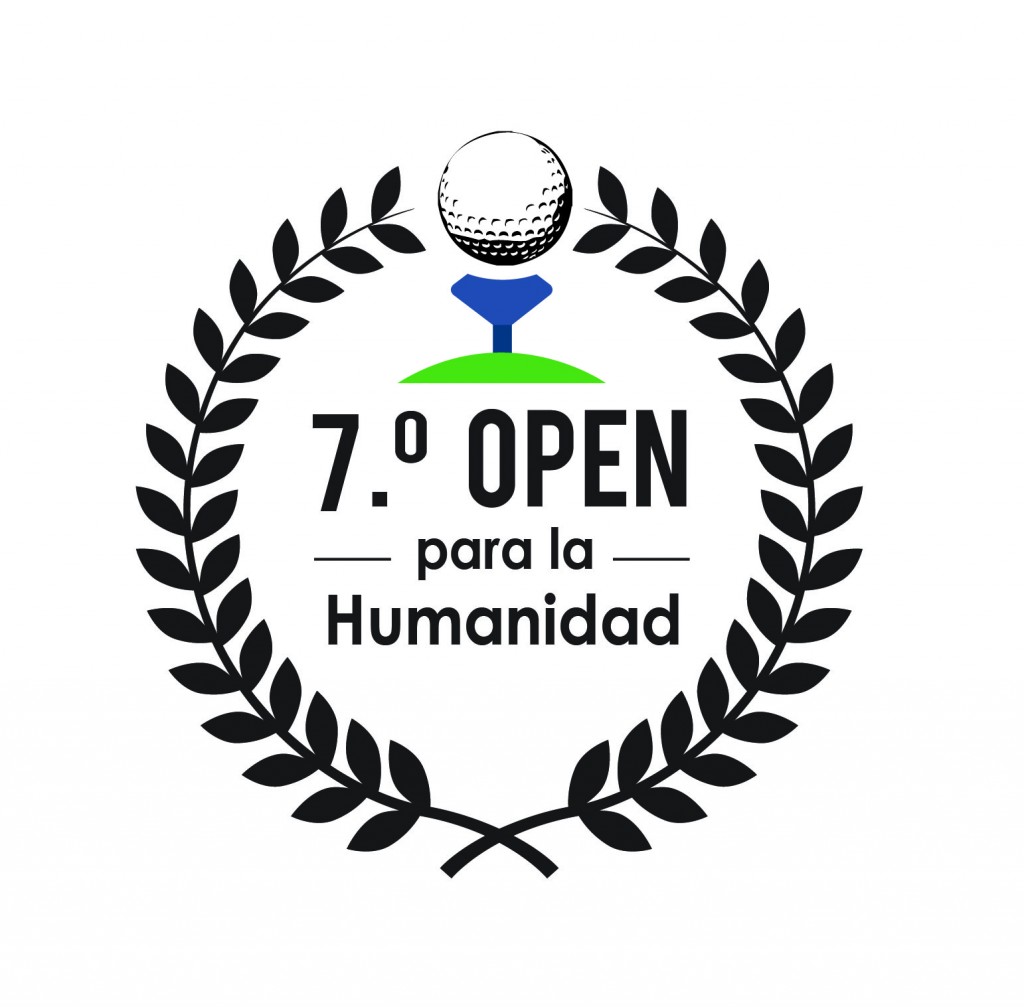
El pasado 4 de marzo se llevó a cabo nuestro 7º torneo abierto de golf, «7º Open para la Humanidad», en el Guatemala Country club, con la participación de 38 jugadores, se dio inicio a las 7:30 horas y compieron por los premios individuales y en parejas.
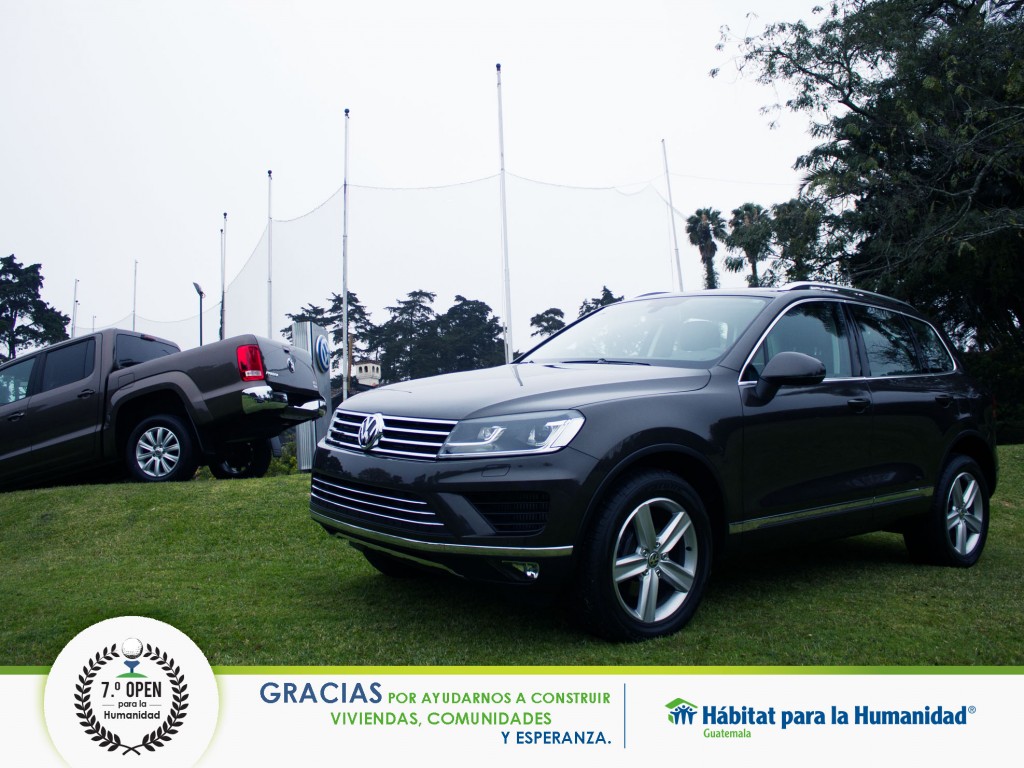
Al pasar por el hoyo 12, todo los jugadores tuvieron la oportunidad de ganar un Volkswagen Tiguan como premio al Hole in One, sin embargo tendremos que esperar un año más para que un jugador pueda llevarse el vehículo a casa.
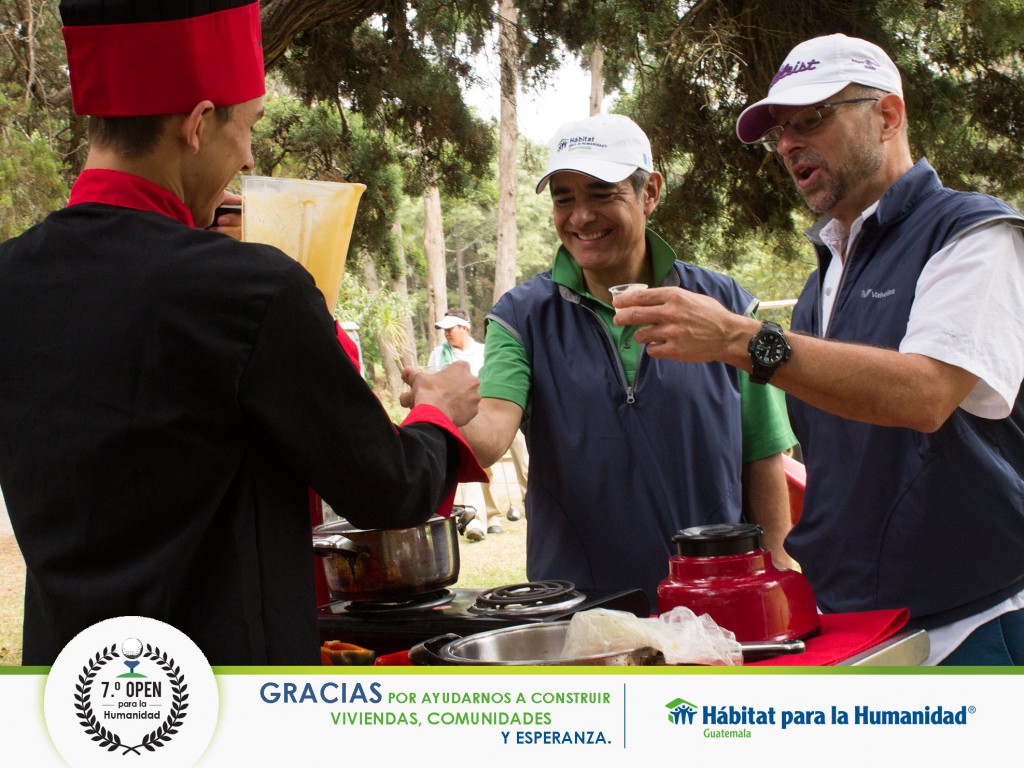
Al término del juego, un aproximado de 75 personas entre jugadores, visitantes y acompañantes visitaron los diferentes Stands de marcas patrocinadoras, instalados dentro del área de la terraza de la casa club y piscina.
Finalmente llegamos al momento que todos esperaban, la premiación individual y en parejas, llevada a cabo durante el almuerzo, alternada con una rifa de más de 30 premios.
Ganadores Best Ball en parejas |
Ganadores Individuales |
Primer lugar con un Score de 60Alejandra Suger |
Straightest Driver en Hoyo 11Stefan Preuss |
Segundo lugar con un Score de 61Federico Staebler |
Closest to the Pin en Hoyo 2Fernando Lee |
Tercer lugar con Score un de 61Rodrigo OliveroChristopher Andrews |
Closest to the Pin en Hoyo 8Luis Porras |
Premio Neto Individual 65
|
|
Premio al Gross
|


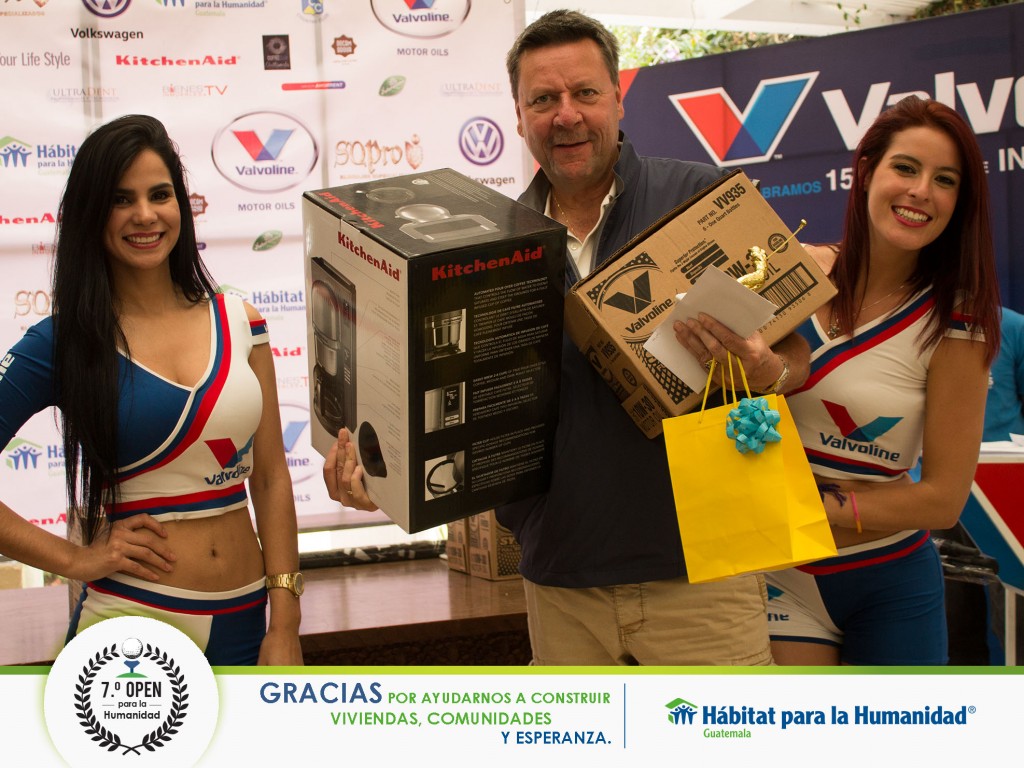
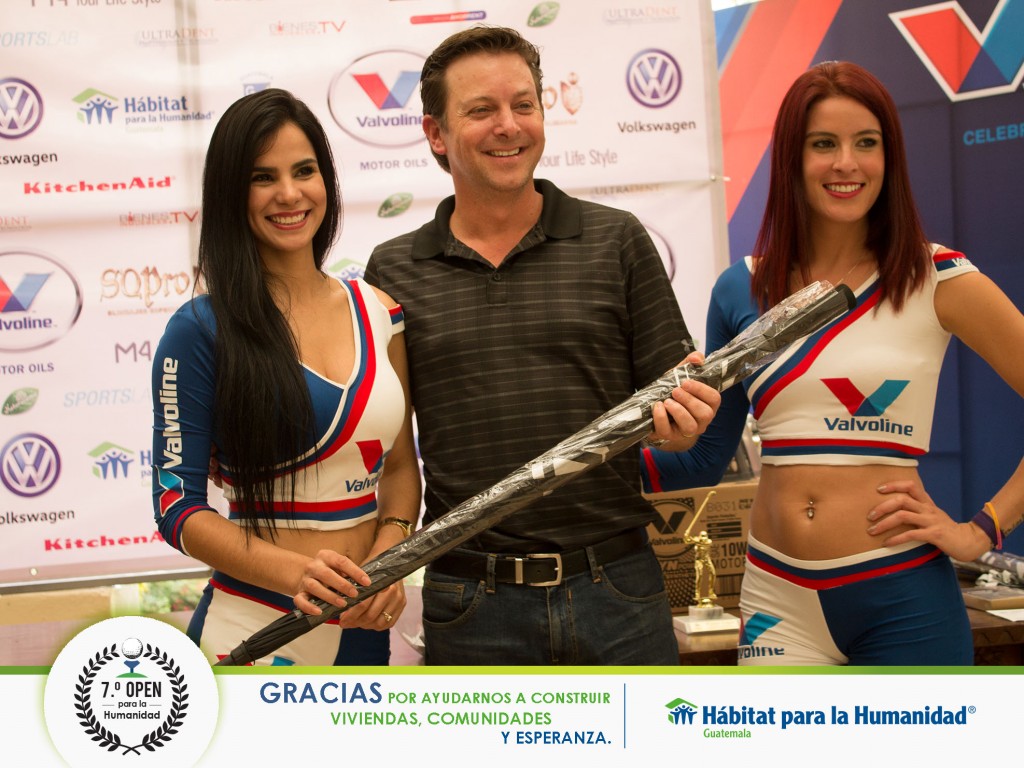
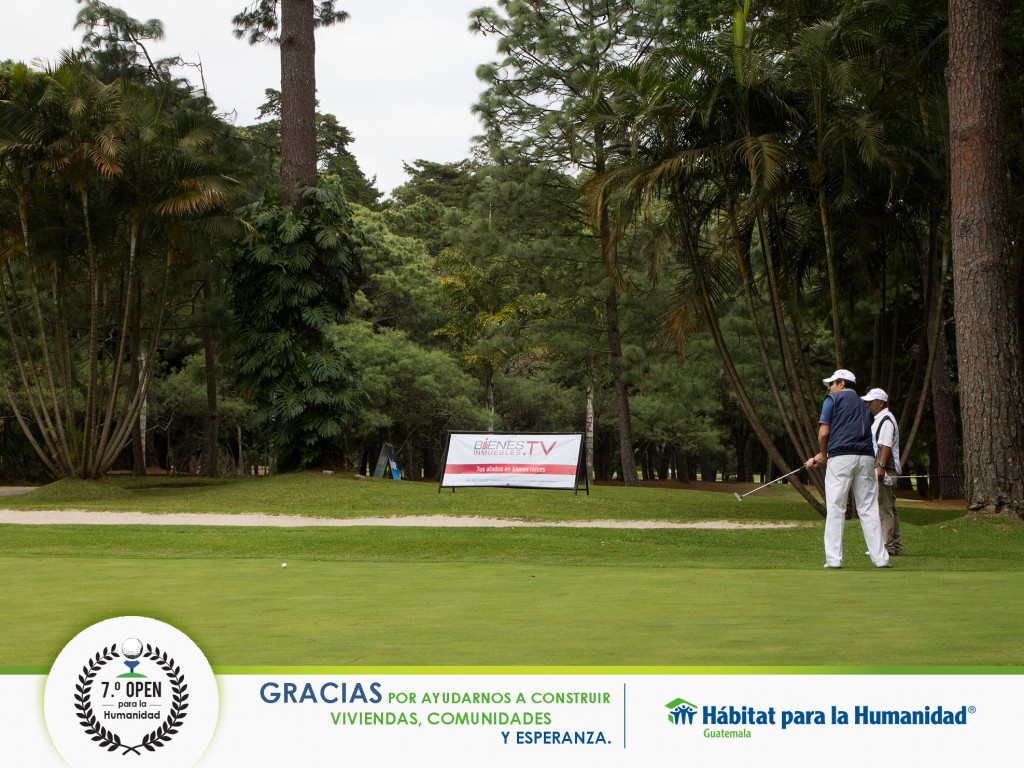
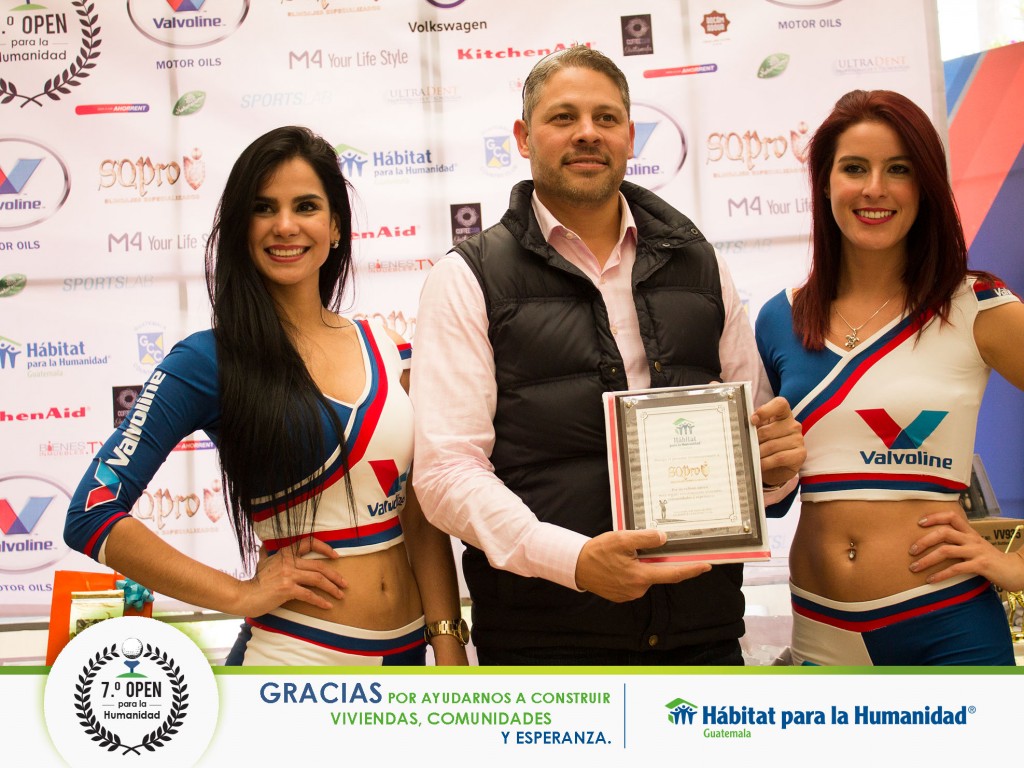
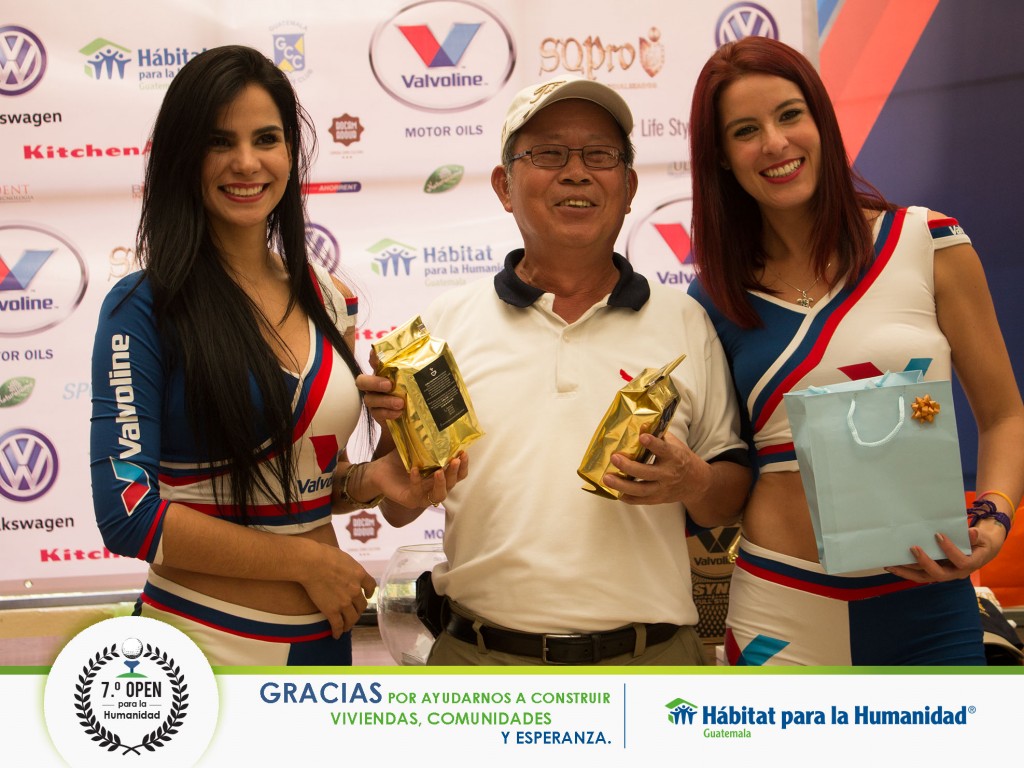
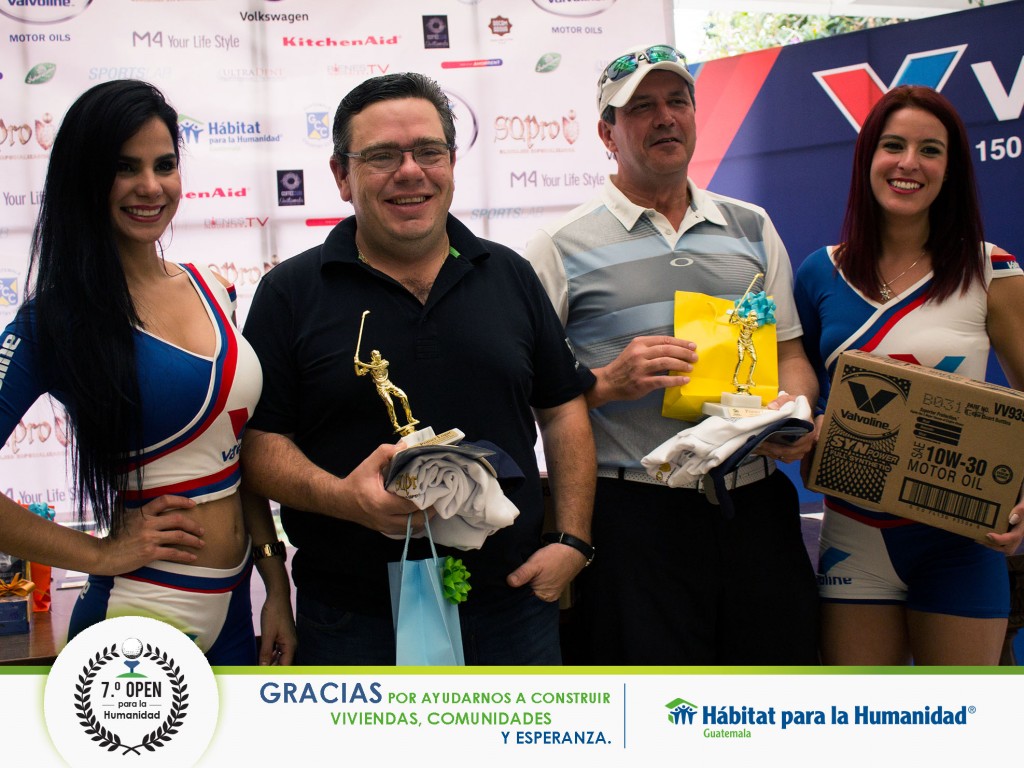
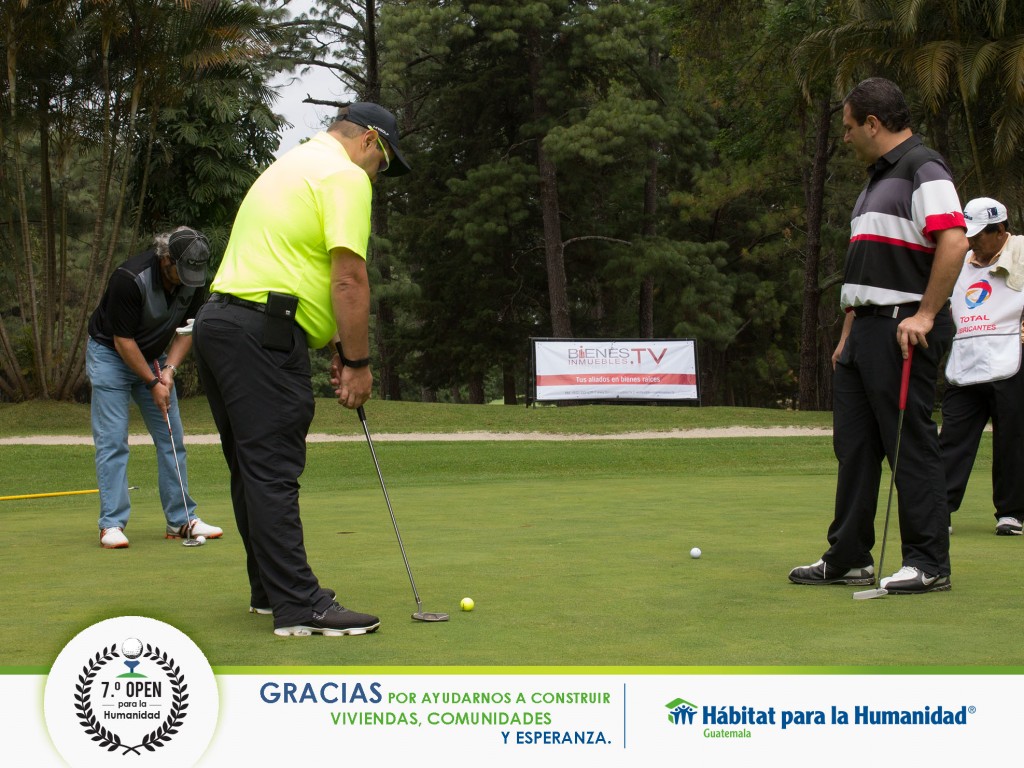
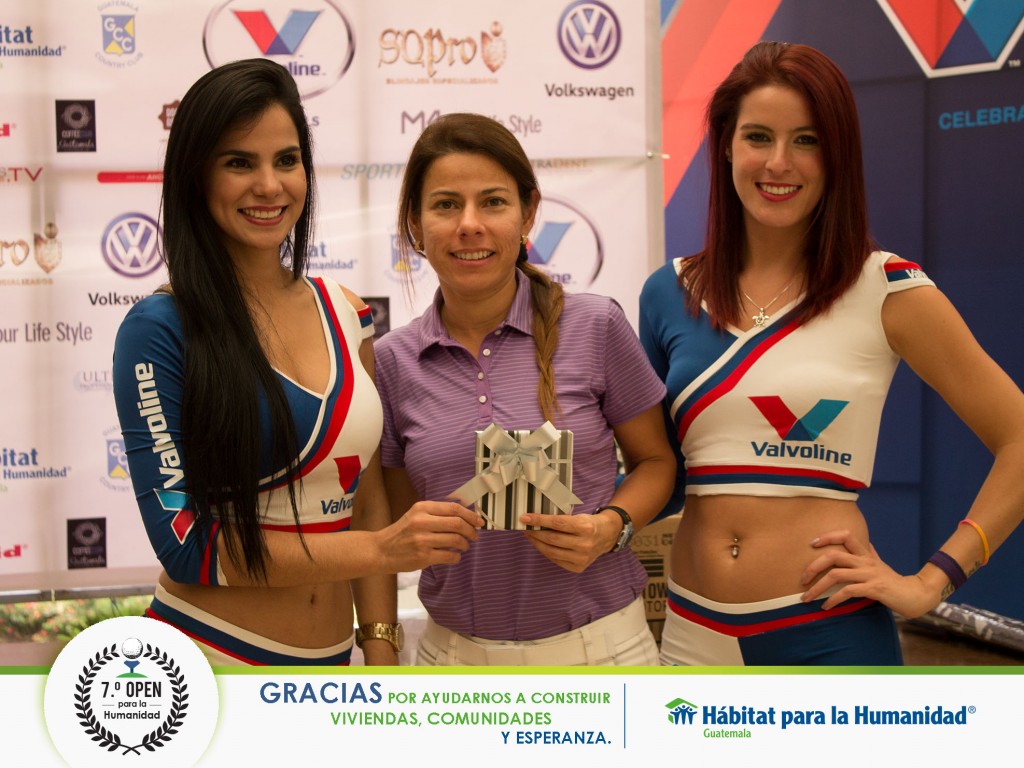
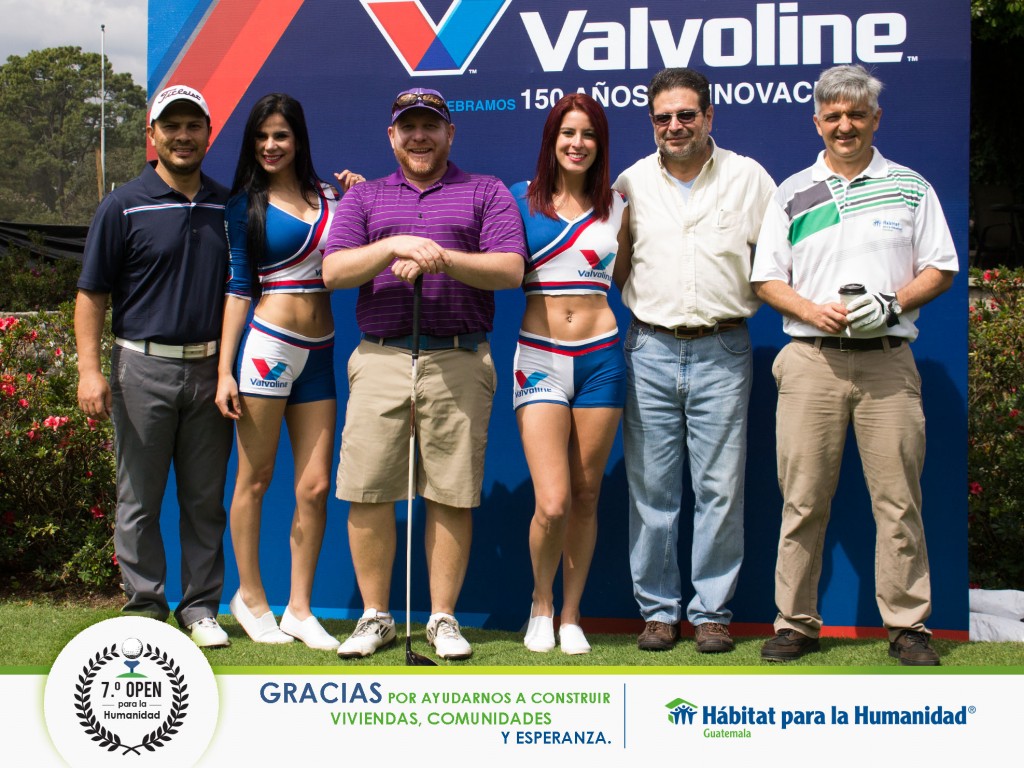
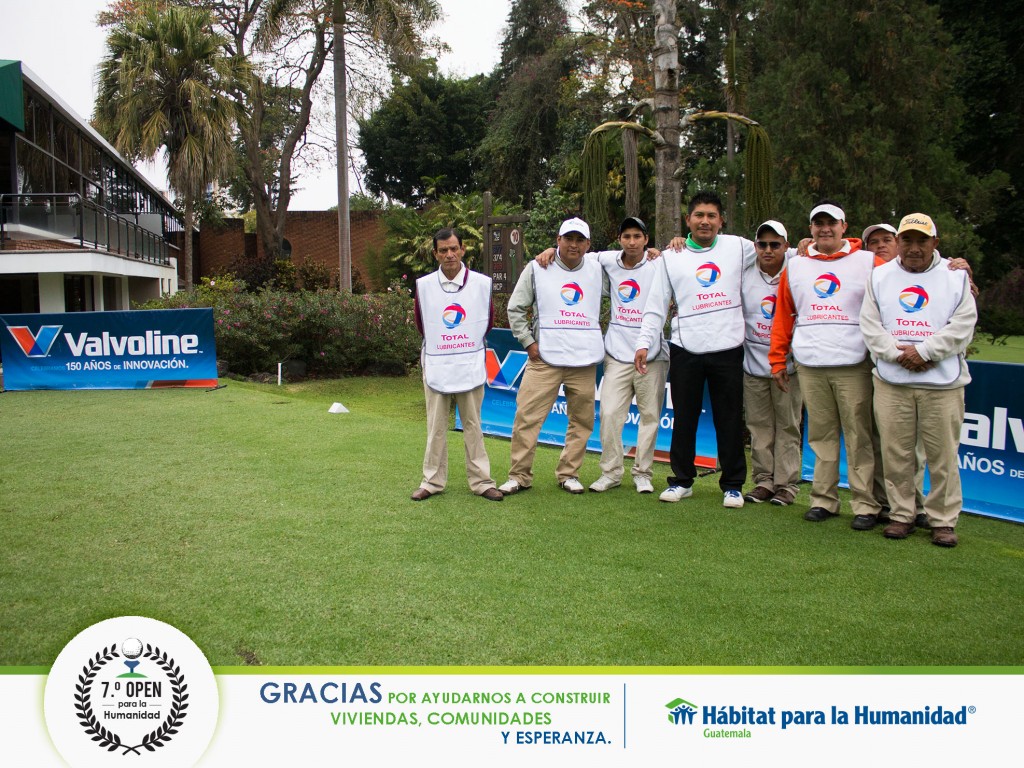
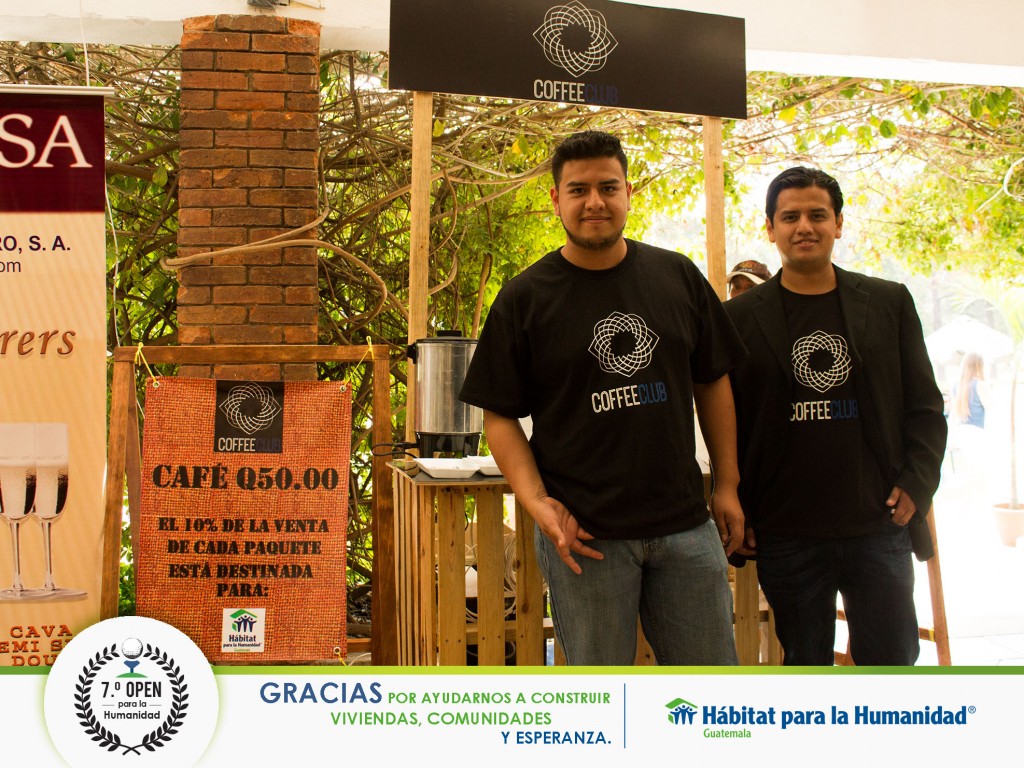
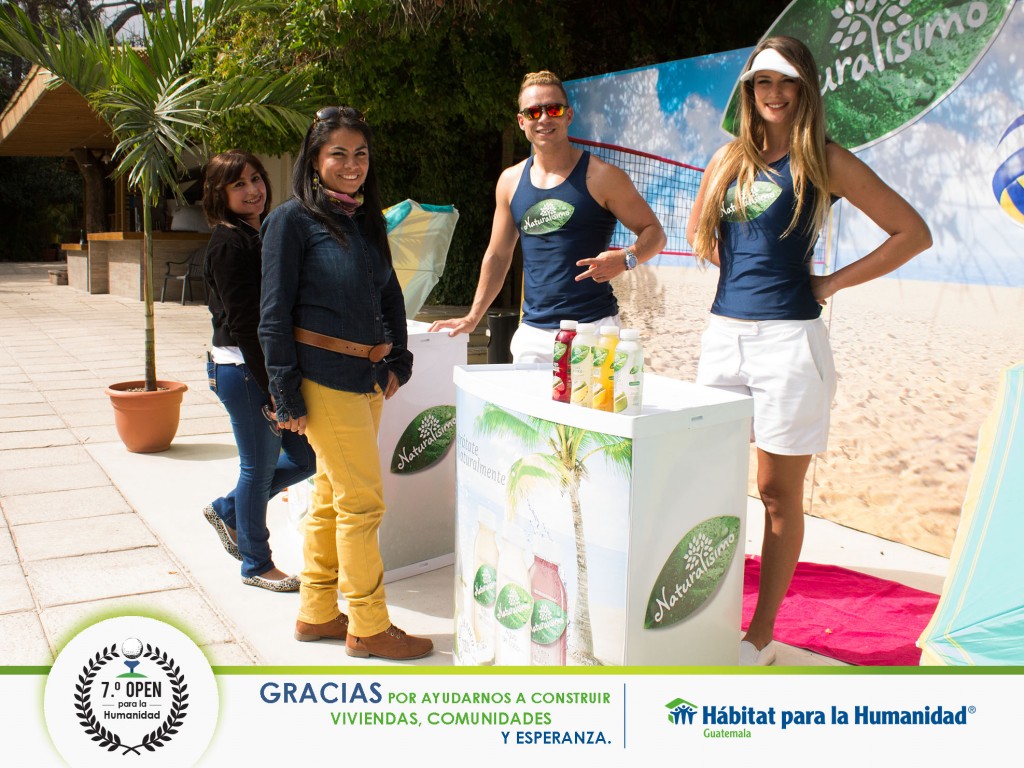
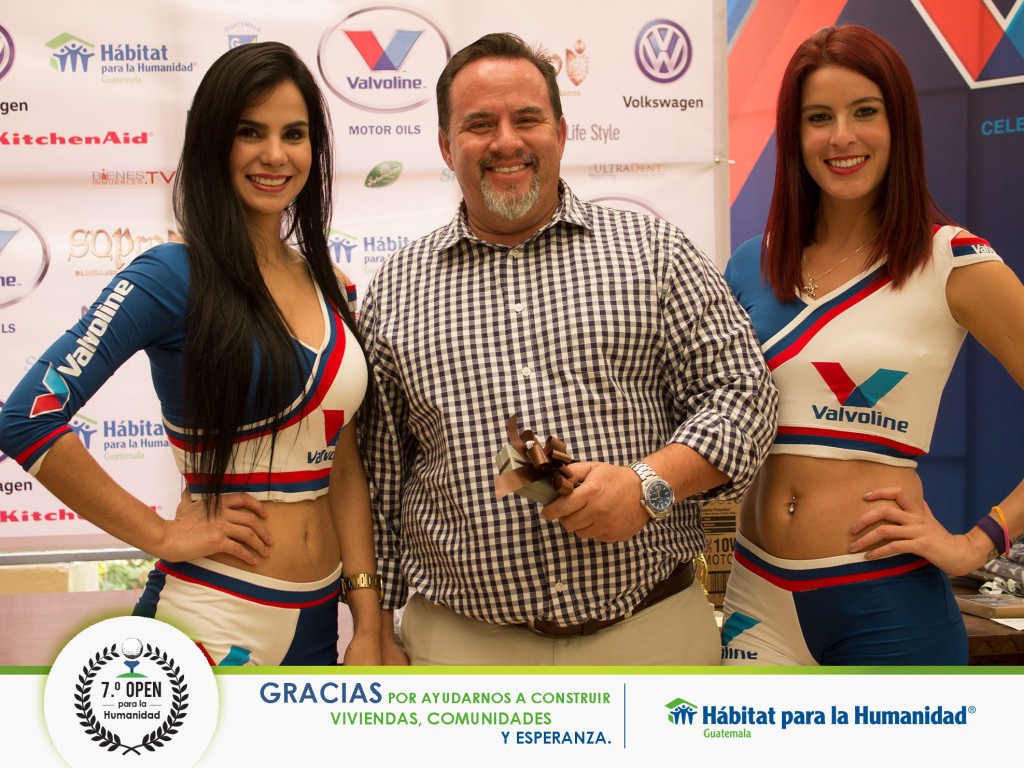
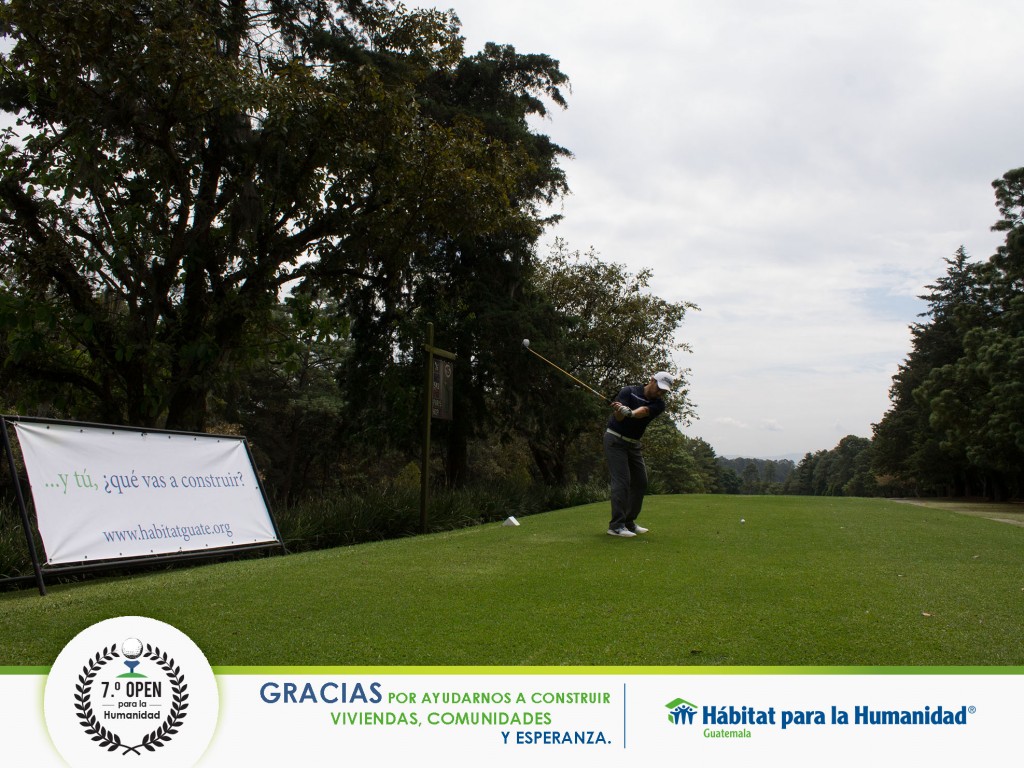
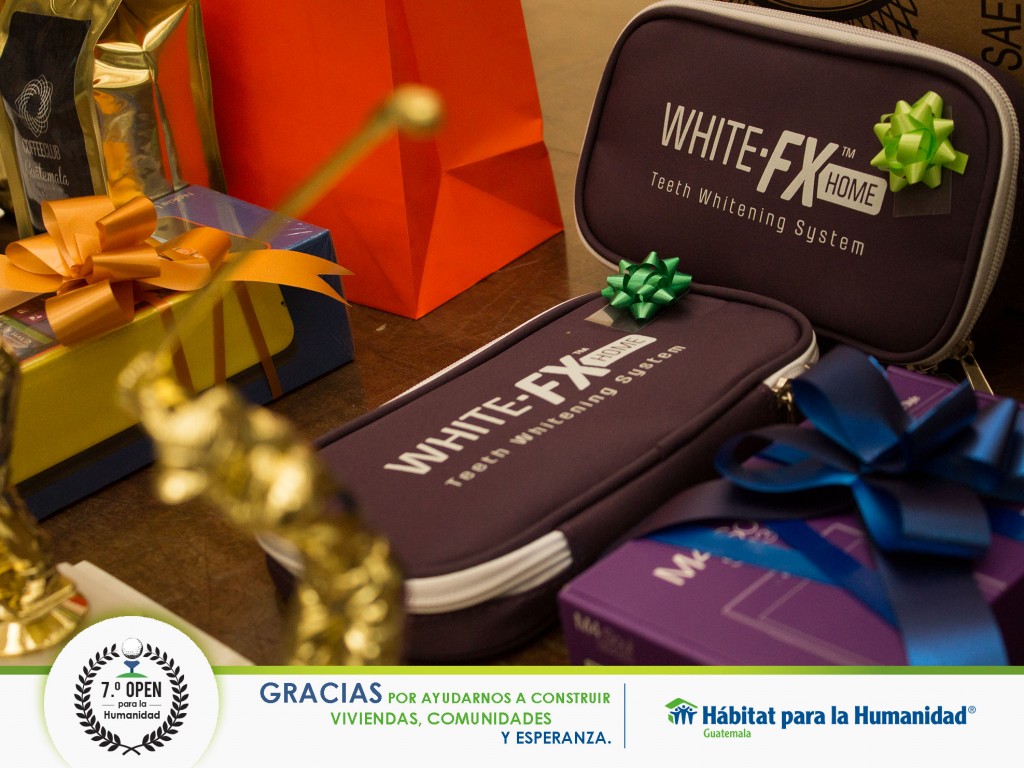
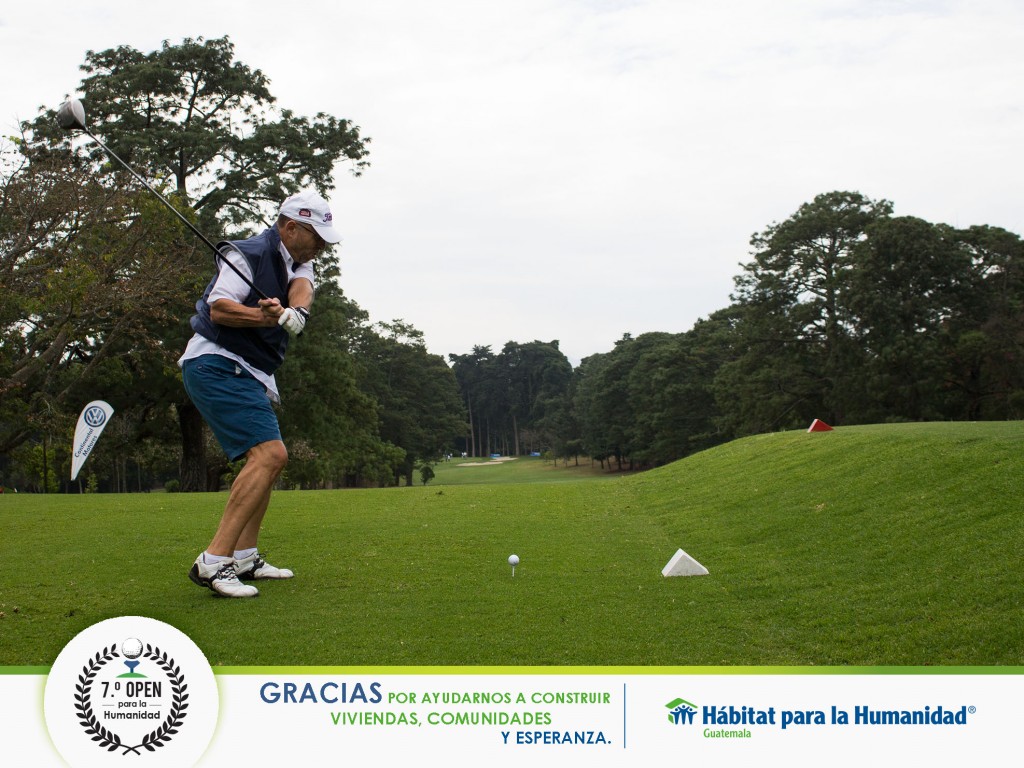
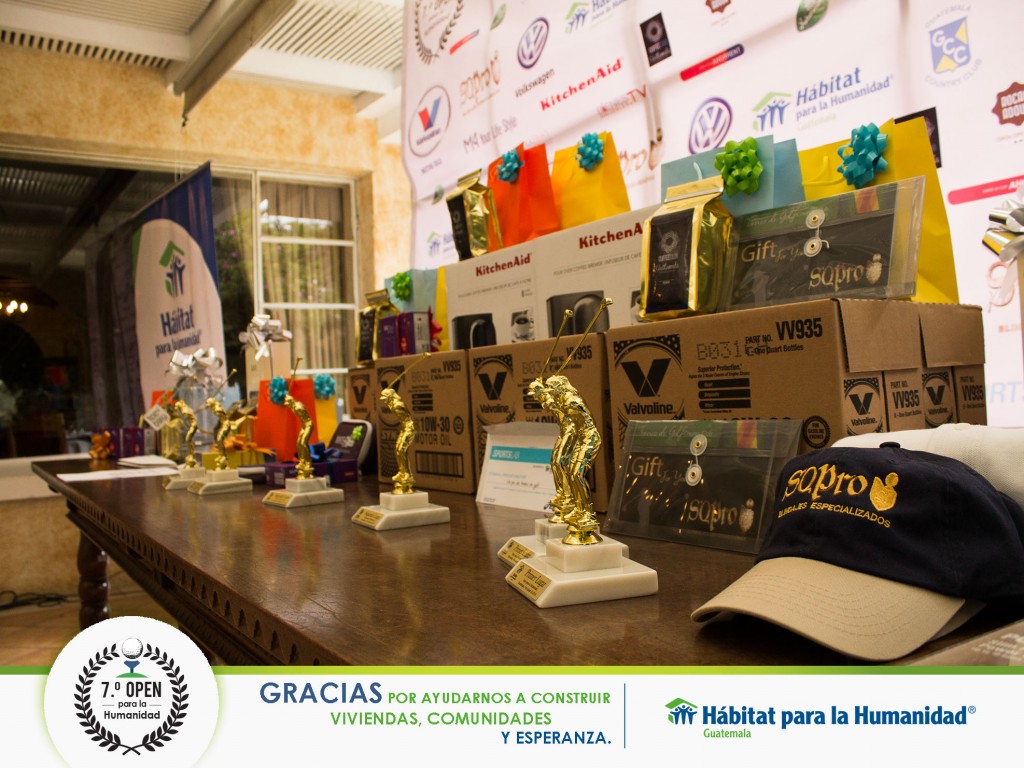
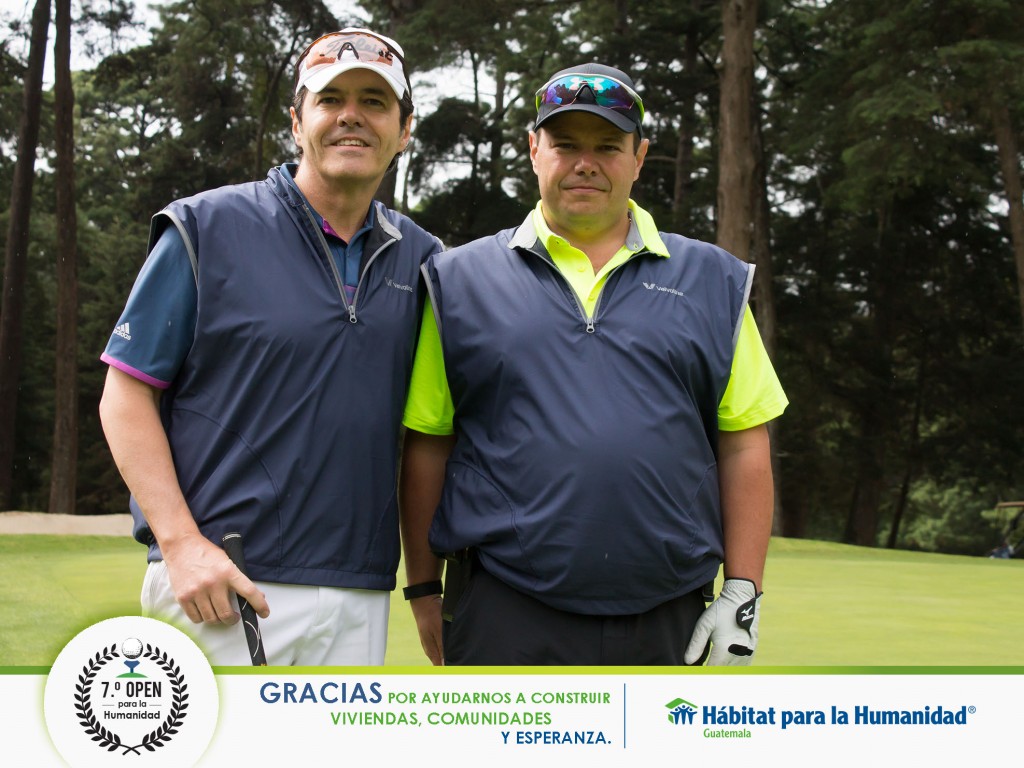
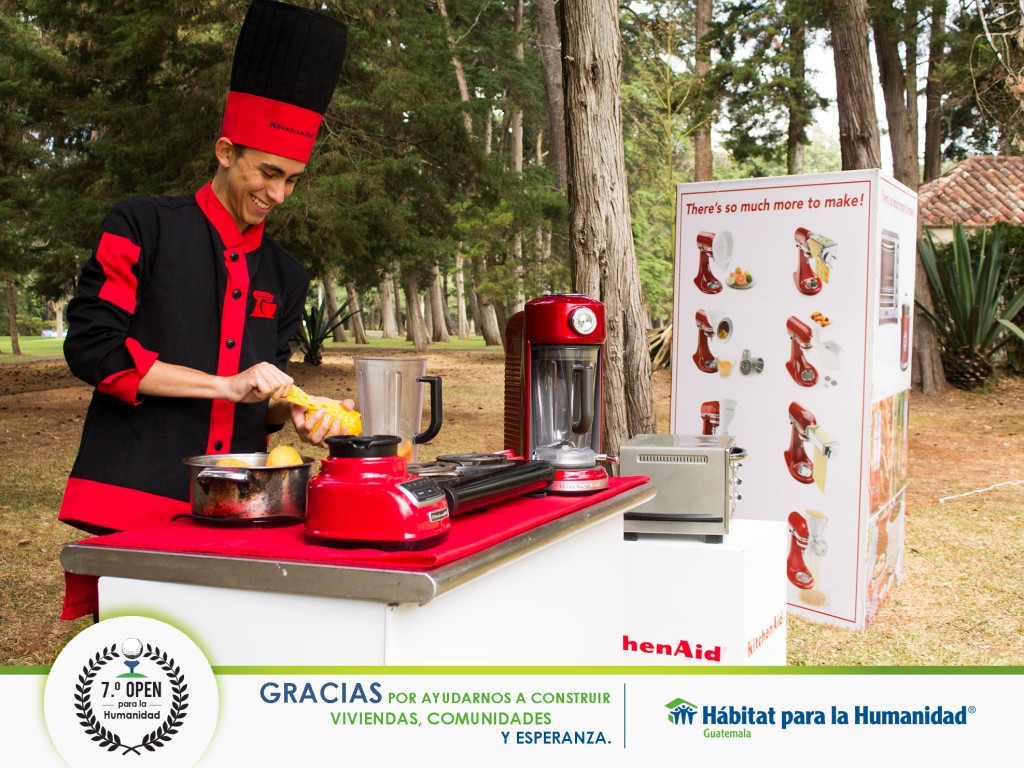
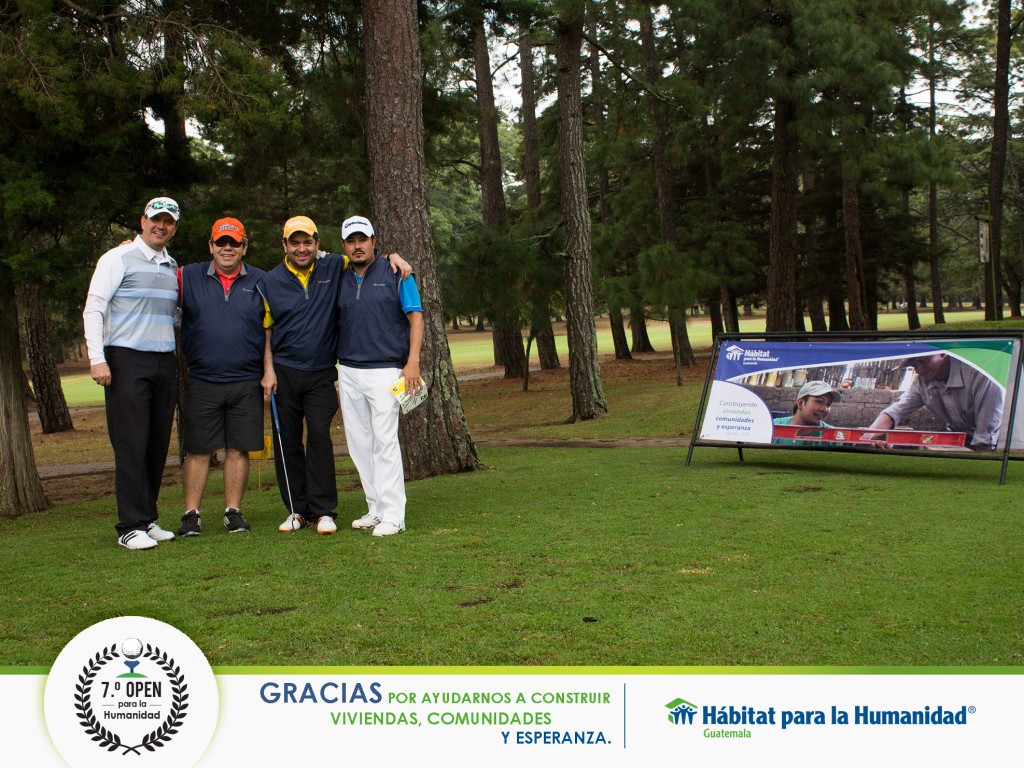
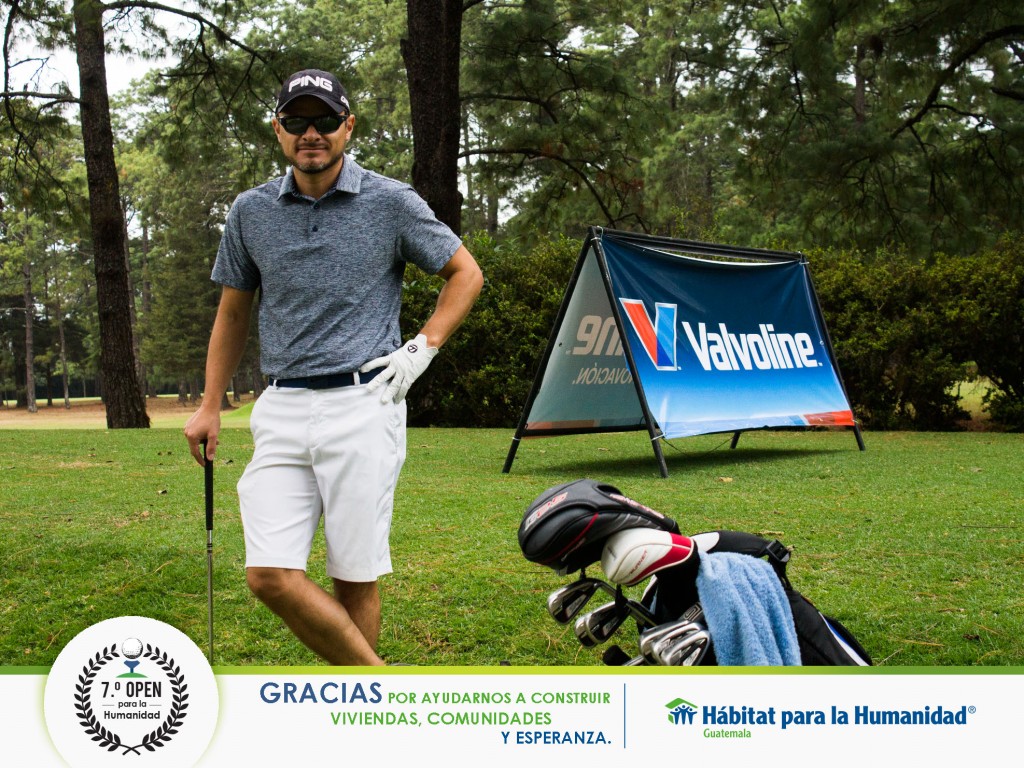
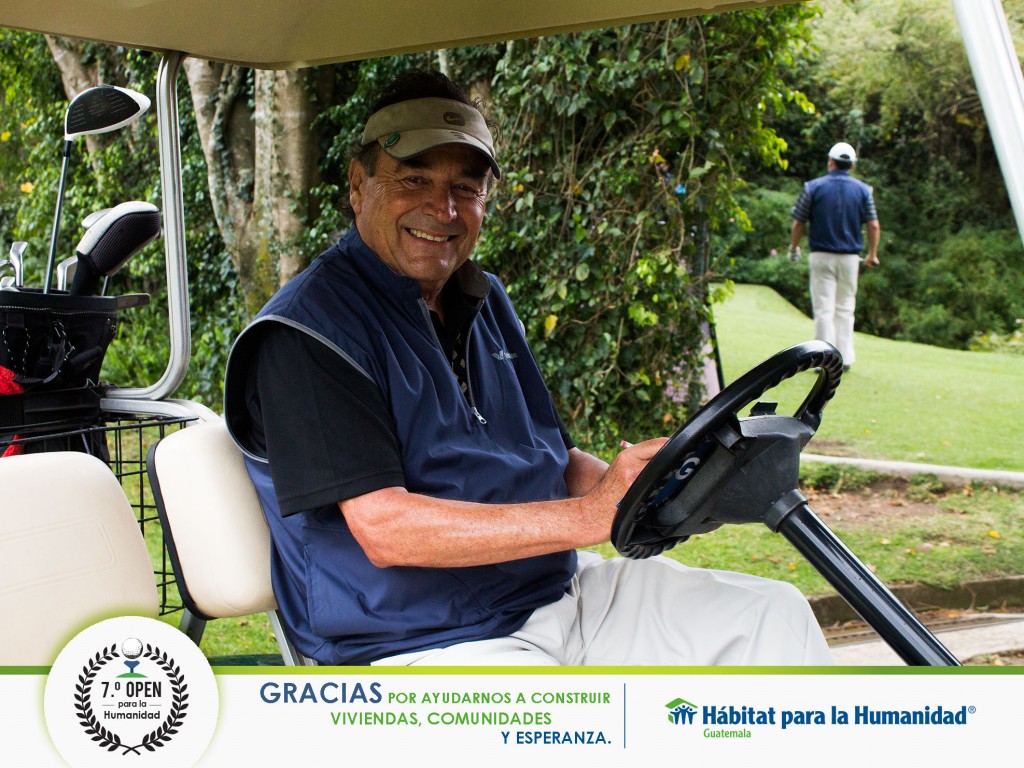
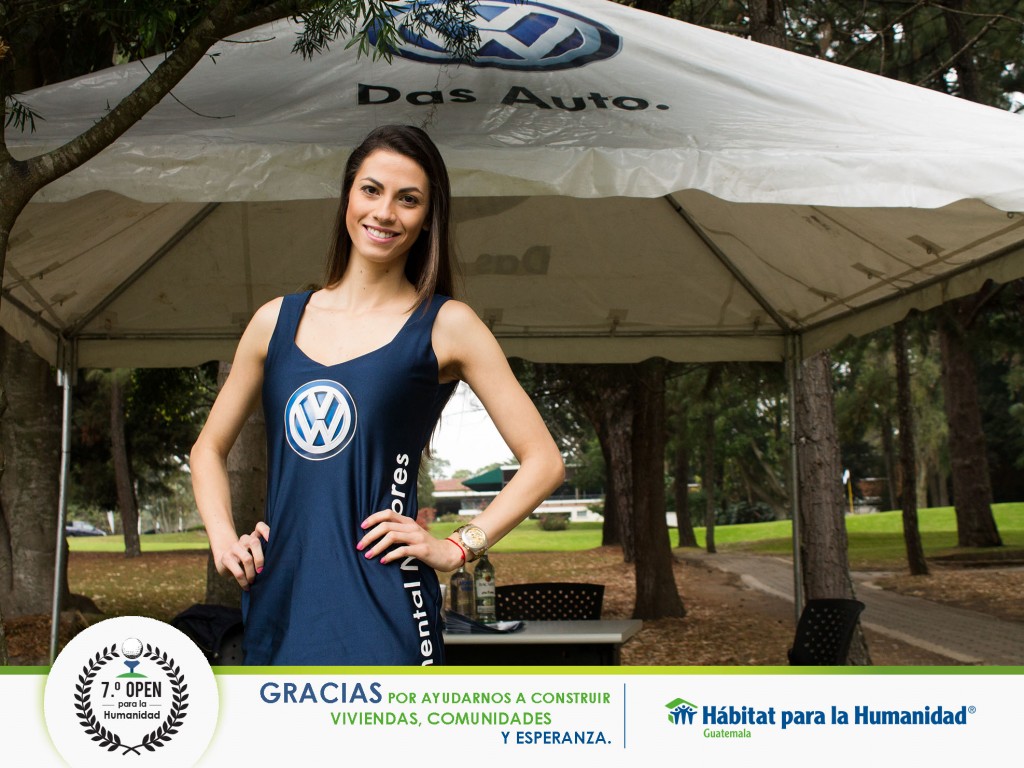
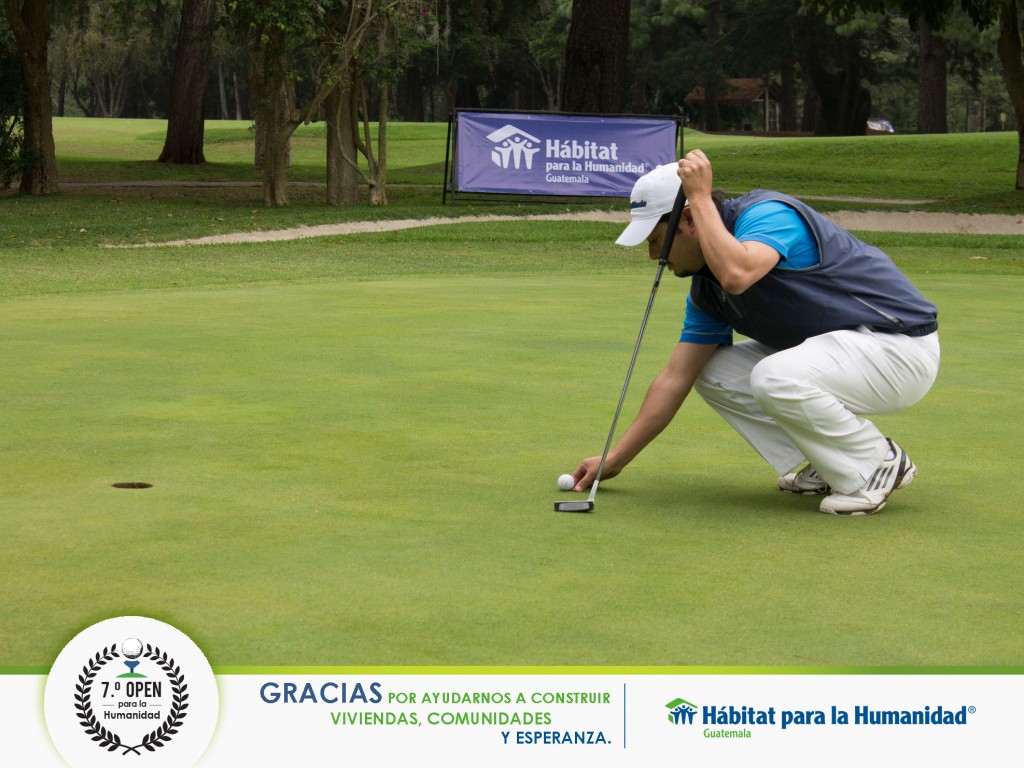
atención al cliente
QUETZALTENANGO
18 avenida 5-13 zona 3.
7736-8264 / 7763-7524 / 4740-6832
atención al cliente
GUATEMALA (REGIÓN GUATE-CENTRO)
3 Av. 8-26, Zona 10. Guatemala
23392223
atencionfamilias@habitatguate.org
© 2020 Habitat para la Humanidad ® Guatemala. | Desarrollado por iGuate.com

